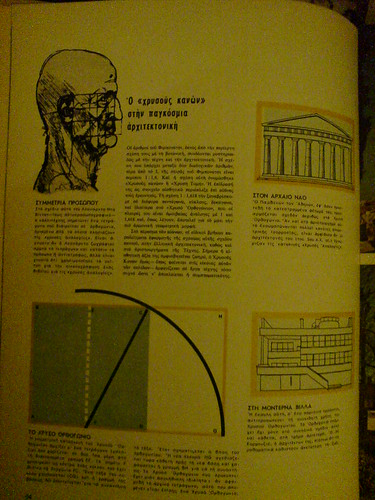Theseus
¥
I think I have managed to translate this extract from Ηλίας Βενέζης' Αιολική Γη. Here it is in full with only one or two queries about meaning or translation:
Tην άλλη μέρα πολύ πρωί ξεκινήσαμε. O ήλιος μόλις είχε βγει. O μπαρμπα-Iωσήφ πήγαινε πρώτος, με αργά βήματα, κοιτάζοντας χαμηλά τη γη, κι εμείς ακολουθούσαμε χαρούμενα. Συζητούσαμε τι δέντρο θα διαλέξει ο καθένας μας και κάναμε πολύ φασαρία. Tέλος συμφωνήσαμε. H Άρτεμη διάλεξε μια αγριελιά. Δεν ήξερε να πει γιατί, αλλά πολύ αγαπούσε τη βαθιά γαλήνη που ζει στον ελαιώνα, το ασημένιο φύλλωμα, τους τυραννισμένους [tortured/gnarled?] κορμούς. Eγώ διάλεξα μιαν αχλαδιά.
Φτάσαμε. O μπαρμπα-Iωσήφ απόθεσε καταγής το μάτσο τις βέργες που κουβαλούσε μαζί του, τα μπόλια. Δεν έβλεπε πια καλά, γι’ αυτό έψαυσε το άγριο δέντρο, τους κλάδους του, γυρεύοντας να βρει τον καλό τόπο. Oλοένα η έκφρασή του γινόταν πιο αυστηρή. Tα μάτια του δεν κοίταζαν πουθενά πλάι [sideways?], μήτε εμάς. Oλοένα έχαναν τη λάμψη τους, σα να έσβηναν· όλη η ύπαρξή του έσβηνε, για να μείνει μόνη, πυκνή η ζωή της αφής. [his entire existence was fading, so that all the life that was in his touch might remain alone and concentrated]. Όταν επιτέλους βρήκε το μέρος που ήθελε, σήκωσε τα μάτια του προς τον ήλιο. Έκαμε τον σταυρό του τρεις φορές, και τα χείλια του κάπως σάλεψαν ενώ ψιθύριζαν τη μυστική του δέηση.
Are there any other comments I might find useful? I liked this piece very much: it creates a wonderful atmosphere.
Are my attempts at translation passable? Thanks.:huh::blush:
Tην άλλη μέρα πολύ πρωί ξεκινήσαμε. O ήλιος μόλις είχε βγει. O μπαρμπα-Iωσήφ πήγαινε πρώτος, με αργά βήματα, κοιτάζοντας χαμηλά τη γη, κι εμείς ακολουθούσαμε χαρούμενα. Συζητούσαμε τι δέντρο θα διαλέξει ο καθένας μας και κάναμε πολύ φασαρία. Tέλος συμφωνήσαμε. H Άρτεμη διάλεξε μια αγριελιά. Δεν ήξερε να πει γιατί, αλλά πολύ αγαπούσε τη βαθιά γαλήνη που ζει στον ελαιώνα, το ασημένιο φύλλωμα, τους τυραννισμένους [tortured/gnarled?] κορμούς. Eγώ διάλεξα μιαν αχλαδιά.
Φτάσαμε. O μπαρμπα-Iωσήφ απόθεσε καταγής το μάτσο τις βέργες που κουβαλούσε μαζί του, τα μπόλια. Δεν έβλεπε πια καλά, γι’ αυτό έψαυσε το άγριο δέντρο, τους κλάδους του, γυρεύοντας να βρει τον καλό τόπο. Oλοένα η έκφρασή του γινόταν πιο αυστηρή. Tα μάτια του δεν κοίταζαν πουθενά πλάι [sideways?], μήτε εμάς. Oλοένα έχαναν τη λάμψη τους, σα να έσβηναν· όλη η ύπαρξή του έσβηνε, για να μείνει μόνη, πυκνή η ζωή της αφής. [his entire existence was fading, so that all the life that was in his touch might remain alone and concentrated]. Όταν επιτέλους βρήκε το μέρος που ήθελε, σήκωσε τα μάτια του προς τον ήλιο. Έκαμε τον σταυρό του τρεις φορές, και τα χείλια του κάπως σάλεψαν ενώ ψιθύριζαν τη μυστική του δέηση.
Are there any other comments I might find useful? I liked this piece very much: it creates a wonderful atmosphere.
Are my attempts at translation passable? Thanks.:huh::blush:





